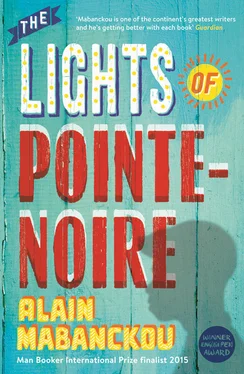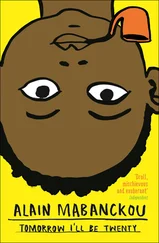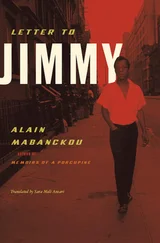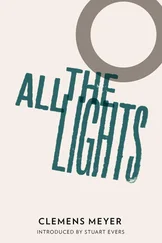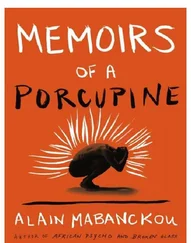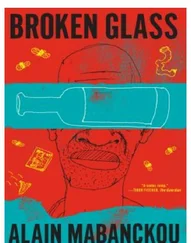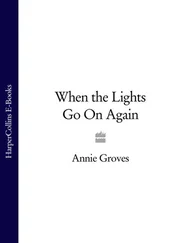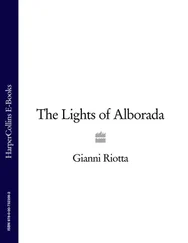As soon as Gilbert and my girlfriend are gone, Koblavi assumes a pained expression:
‘I’ve seen you so often on the TV, talking about your books. I’m sorry, I’m ashamed, I’ve never read them… One day in an interview you even mentioned the Cinema Rex, I can’t tell you what pleasure it gave me to hear that!..’
He looks up at the sky:
‘The Lord has forsaken this town, and in doing so He also turned His back on the Cinema Rex… Sometimes I go into the auditorium, I close all the doors, and I sit down in the middle, just to remember the old days, when it was packed full. I can hear the noise, the shouting, I can still see the dreams of those young people floating up above their heads, forgetting their everyday troubles, just for an hour or two…’
‘There are video recorders now, DVD machines, they can still have their dreams and…’
‘That’s all garbage, Mr American! How could that replace the atmosphere we had at the Cinema Rex? All these new things, it’s the age of individualism! We’ve forgotten the true meaning of cinema, little brother! A film you watch at home doesn’t affect you like a film you watch with a crowd at the cinema!’
He brushes away a couple of flies buzzing round his head and continues:
‘You’ve come from America, let me recommend you watch Becky Sharp ! Now that’s real cinema, you take my word! And it’s not just because I like Miriam Hopkins, though I have seen her before, in Doctor Jekyll and Mr Hyde ! She’s quite marvellous!’
He stands up, goes into the house, comes back a minute later with a photo of the American actress and hands it to me:
‘Look at her, wasn’t she beautiful? I insisted we show every film she’d ever been in at the Cinema Rex! Of course, people would rather watch shoot-outs and native Indians and Louis Funès fooling about, and all those idiot actors in the martial arts films. What can you learn from a martial arts film?’
He practically snatches the photo out of my hands and blows on it.
‘I’m not having any dust on my idol’s picture!’
He goes to put the photo back inside, and comes back with a bottle of beer and two glasses. I tell him about America, since he asks me. His eyes shine, he’s almost like a child who’s thrilled with a present:
‘So you’ve actually seen Miriam Hopkins’ two stars on the Hollywood Walk of Fame?’
‘No, sadly, I haven’t… I don’t know that actress. I wasn’t paying attention when I saw Doctor Jekyll and Mr Hyde …’
His face stiffens, as though I had just committed sacrilege. With eyes half closed, he murmurs:
‘That’s my dream, to go to Hollywood. I can’t believe you live in the city of cinema and you’ve never found time to go and see Miriam Hopkins’ two stars…’
Resigned now, he launches into a diatribe against the political authorities who failed to help him, obliging him to rent the Cinema Rex out to a religious congregation:
‘Those politicians, they killed the cinema! And it’s the same everywhere, little brother! Even in Brazzaville there are no cinemas left! How will young people ever get to know Miriam Hopkins? The cinema was something magical; wherever there was a picture house, the neighbourhood took its name. We’ve got the Rex district and the Duo district and the Roy district, but those politicians understand nothing about that kind of impact!’
Out of pure modesty, Koblavi avoids mentioning his historic and prestigious family name, the name of his Ghanaian grandparents, who, in the late 1940s, dominated the fishing trade in Pointe-Noire. But the thing their descendant is apparently most proud of is the cinema, whose demise he continues to bewail. He’s almost apologising for having done a deal with these servants of God who sell tickets to paradise to their flock, unaware that many children in Pointe-Noire will never taste the atmosphere of those darkened movie houses, the succession of adverts and the opening credits of the film, followed by the applause of the audience. Noticing the little chain with a cross on around his neck, I say nothing critical about religion. But he touches it and tells me:
‘Ah no, I don’t belong to the New Jerusalem, I’m still a Catholic in the strict sense of the word…’
And finally he talks about my mother, whom he knew, about Uncle Albert, who was a friend of his father. As though speaking his last words, he murmurs very softly:
‘I know my origins are Ghanaian, by my parents, but I’ve always felt Pontenegrin. D’you hear my accent? No one’s more Pontenegrin than I am in this town! I’ve never been made to feel an outsider here, by anyone. This is where I live, this is where they’ll bury me…’
Gilbert and my girlfriend are back now. They’ve spent over half an hour taking photos of the old Cinema Rex, and as they show them to Koblavi his features, sunk in nostalgia till now, light up with a smile. He even allows himself to be photographed, with his broadest smile:
‘You should never look sad in a photograph, you don’t know who might look at it in ten years’ time, or twenty, or thirty, or forty, or fifty!’
He comes with us as far as the exit to his plot, and watches as we walk away.
We pass by the cinema again, where the two worshippers are still standing guard like a pair of Cerberuses. This time they don’t dare look us straight in the eye. There’s even a shadow behind them: the pastor, who watches us closely as we cross the Avenue of Independence…

Most districts in Pointe-Noire still have the same names, based on the activity of the inhabitants, or on their ethnic or geographical origins. The ‘popo’ villages, for example, all along the Côte Sauvage, were created by fishermen from Ghana and Togo, and by the popos from Benin, who came here in the late 1940s, like the Koblavi family. They had a monopoly on traditional sea fishing, using a technique, and material — the famous fourteen-metre popo pirogue, or dugout canoe — which the natives, coastal people of Vili origin, in their comparatively basic boats, which measured no more than five or six metres, could not compete with. The Senegalese, Malians and Mauritians, all of them great traders, made up the ‘Grand Marché’ district, where they put up the only mosque in a city which is otherwise mostly Christian or even animist. The boutiques selling imported pagnes, and the general food and white goods shops, were all kept by West Africans from these countries, who, as their own retirement drew near, passed the business on to their own compatriots, so that the Pontenegrins began to think they never died, especially as many of them shared the same surnames.
Was it a herding instinct which led those originating from certain departments in the west of the coutnry — the Niari and the Lékoumou — to come together again in districts such as ‘Cocotier-du-Niari’ and ‘Pont-de-la-Lékoumou’, while those from the south of the country, notably from the Bouenza department, and above all from the Mouyondzi region, settled in ‘Pont de la Bouenza’ district and ‘Mouyondzi’? In this way the economic capital was in line with the rest of the country, where ethnicity was more important than nationhood. How could it have been otherwise when even at the pinnacle of the state, power was distributed according to this pattern? The southerners had felt frustrated for decades by the northerners’ stranglehold on political power. Of course, from time to time the latter shuffled the pack and assigned the portfolio for hydrocarbons to a minister from the south. The population didn’t fall for it: the minister was merely a stooge, whose only legitimacy came from the fact that he was from the southern region where petrol was to be found. This did not suffice to quash the southerners’ dissatisfaction. They were supposed to feel they had cornered the main source of wealth in the Congo, whereas in fact everyone knew the minister had no control whatsoever over the contracts, which all went to northerners.
Читать дальше
